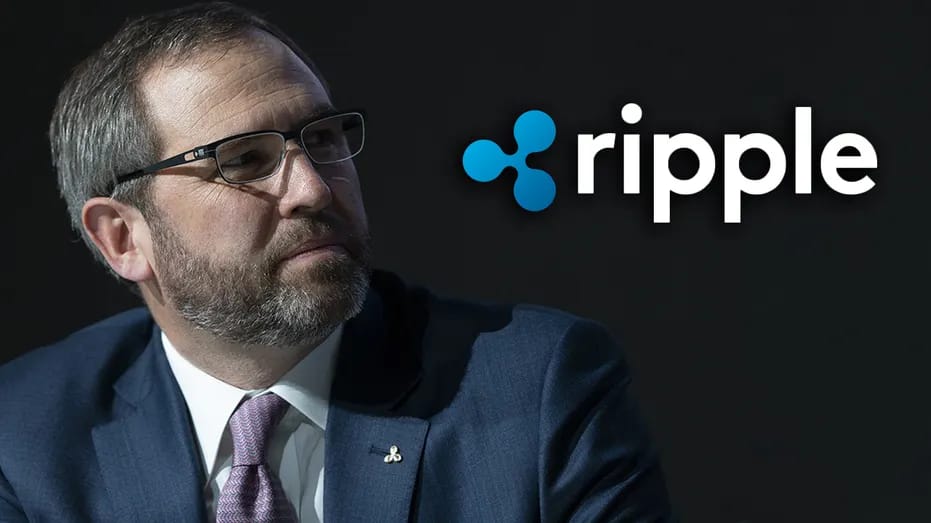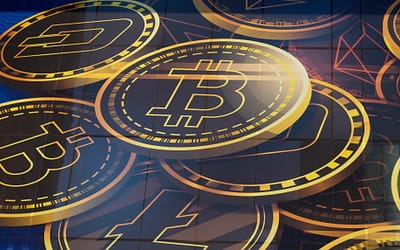In a defining moment for cryptocurrencies, last week a federal court in New York declared that Ripple's XRP token transactions through exchanges did not represent securities transactions, contradicting the U.S. Securities and Exchange Commission's (SEC) 2020 claims. The verdict caused a surge in the crypto market, with Bitcoin breaking $31,000, Ethereum surpassing $2,100, and XRP itself soaring by a staggering 96%. This decision opens new avenues for Ripple's XRP and reshapes the landscape for other cryptocurrencies. When in comes to retail investors, the ruling makes it clear, XRP is not a security.
Ripple and XRP: A Brief Overview
Ripple Labs, the tech company behind XRP, launched the pre-mined blockchain token in 2012 as a speedy, inexpensive, and scalable global payment network. XRP's distinctiveness lies in its limited supply, capped at 100 billion tokens, and it's ability to process transactions quickly and cheaply.
In their case, the SEC alleged that Ripple had conducted an unregistered securities offering by selling XRP tokens. However, in a groundbreaking ruling, U.S. District Judge Analisa Torres rejected the notion that XRP itself is a security. Moreover, she differentiated between transactions involving XRP, affirming that XRP sold to institutional investors did represent securities transactions while those sold via exchanges did not.
Judge Torres's comprehensive ruling clarified that Ripple's XRP sales on public crypto exchanges didn't represent securities offerings, as the buyers didn't harbor an expectation of profit contingent on Ripple's efforts. However, Ripple's marketing efforts aimed at institutional investors seemed to pitch XRP as a speculative investment, which classified these transactions as securities offerings.
Market Reaction to the Ruling
The landmark decision immediately led to a rally in the crypto market, with XRP itself witnessing a 96% surge. Major U.S. exchanges, including Coinbase, and Binance resumed XRP trading for customers. As noted by Coinbase's Chief Legal Officer Paul Grewal, the ruling effectively debunks the notion that securities are being traded in exchange for assets.
While the SEC could appeal the decision, the timeline remains uncertain, and even if they do, that appeals process would likely take a couple of years at the expense of taxpayers' money.
Ripple's Chief Legal Officer expressed confidence in the solidity of the ruling, stating that the company wouldn't hesitate to face an appeal, as any appellate court would likely endorse Judge Torres's core findings, and further put the nail in the coffin to the SEC's claims about Ripple and XRP.
Implications for Retail Investors
The ruling carries significant implications for retail investors trading XRP or other cryptocurrencies, by potentially reducing legal risks associated with buying or selling tokens deemed securities by the SEC. It could enhance the liquidity and accessibility of these tokens by encouraging exchanges to list them without regulatory concerns, as some of them are doing at this time.
This development could also stimulate confidence in the crypto market by demonstrating that regulators are recognizing the potential and innovation in blockchain technology.
Larry Fink, the CEO of BlackRock the world's largest asset manager already has institutions clamoring to buy Bitcoin, and that's part of the reason the company is pushing for a spot ETF.
Benefits for the Larger Crypto Market
This decision could serve as a cornerstone for future cases involving tokens or projects facing similar accusations from regulators. By offering a clearer framework for distinguishing between securities and non-securities based on the nature and purpose of tokens, buyers' and sellers' expectations, and the issuer's involvement, it could spur innovation and competition while safeguarding investors from fraud.
The ruling might ignite the next bull run in the crypto market, by liberating suppressed demand for XRP and other scrutinized tokens. It could also draw new investors and institutions into the crypto arena, recognizing it as a stable and legitimate investment option.
As XRP regains its market position, analysts predict the token could reach new highs in the months to come. There's also speculation that the ruling could trigger a domino effect, inspiring other tokens and projects under SEC scrutiny to seek legal clarification and resume operations.
This ruling could serve as a catalyst for wider crypto adoption as an alternative to traditional finance, facilitating payments, remittances, lending, borrowing, trading, and investing. The consequent growth and maturation of the crypto market could redefine the financial landscape, reaching unprecedented levels of diversity and innovation.
Matt is the founder of TechMalak. When he's not buried face-deep in the crypto charts you can find him tinkering with the latest tech gadgets and A. I tools. He's a crypto investor and entrepreneur. He uses a mixture of A.I and human thought and input into all his articles on TechMalak, further merging man with machine.





